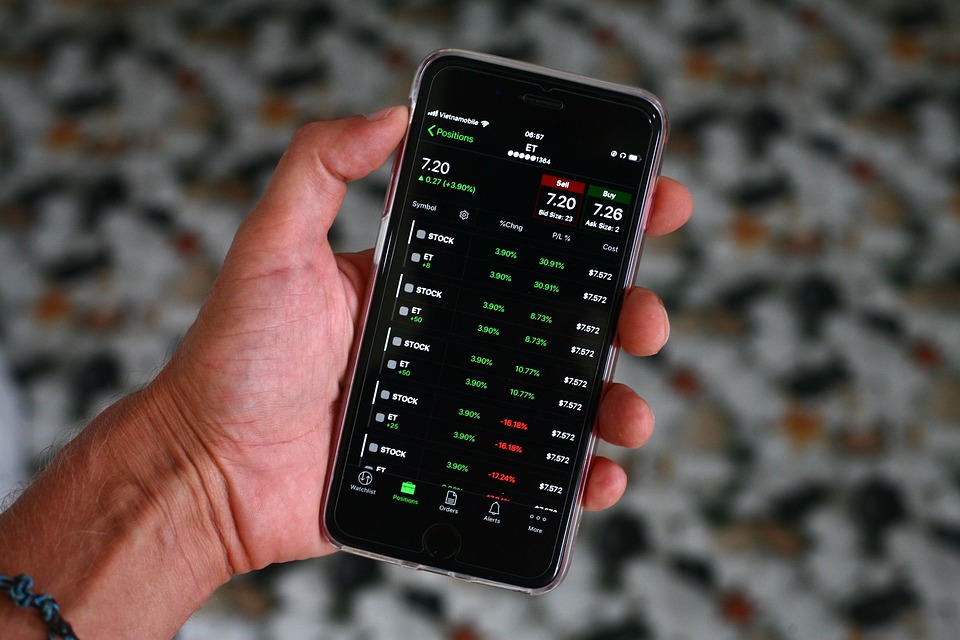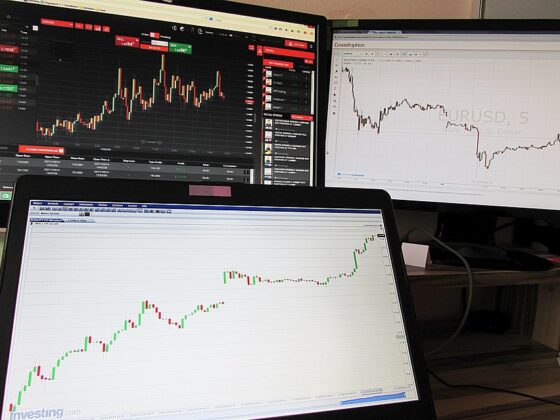Trading in the financial markets can be an exciting and potentially lucrative endeavor, but it can also be daunting for beginners. With so much information available and so many strategies to choose from, getting started can be overwhelming. However, by following some key tips, beginners can navigate the world of trading with more confidence and success. In this article, we will discuss the top 10 trading tips every beginner should know.
1. Educate Yourself: The first and most important tip for beginners is to educate yourself about the financial markets and trading. There are countless resources available online, including articles, books, courses, and videos, that can help you understand the basics of trading, different investment products, and trading strategies. Taking the time to learn will not only help you make more informed decisions but will also give you more confidence as a trader.
2. Start Small: It can be tempting to jump right in and start trading with a large amount of money, but this can be risky, especially for beginners. Instead, start small with a demo account or a small amount of capital that you can afford to lose. This will allow you to practice your trading skills without risking too much money and will help you gain experience without too much pressure.
3. Create a Trading Plan: Before you start trading, it's important to create a trading plan that outlines your goals, risk tolerance, and trading strategies. Your plan should include your trading goals, the markets you want to trade in, your risk management strategies, and your entry and exit points. Having a plan in place will help you stay disciplined and focused, which are key to successful trading.
4. Follow the Trends: One common rule in trading is “the trend is your friend.” In other words, it's often easier and more profitable to go with the trend rather than against it. Keep an eye on market trends and try to align your trades with the overall direction of the market. This can help you increase your chances of success and minimize your losses.
5. Practice Patience: Trading can be fast-paced and exciting, but it's important to remember that success in trading takes time and patience. Don't expect to become a successful trader overnight. Instead, be patient, stay disciplined, and focus on learning and improving your skills. Remember that trading is a marathon, not a sprint.
6. Use Stop Loss Orders: One of the most important risk management tools in trading is the stop loss order. A stop loss order is a preset price at which you will exit a trade to limit your losses. By setting stop loss orders, you can protect your capital and avoid significant losses in case the market moves against you. Make sure to always use stop loss orders in your trades to manage your risk effectively.
7. Diversify Your Portfolio: Diversification is a key principle in investing, and it's equally important in trading. By diversifying your portfolio, you can spread your risk across different assets and reduce the impact of any single loss. Don't put all your eggs in one basket – instead, consider trading in a variety of assets, such as stocks, commodities, currencies, and indices.
8. Manage Your Emotions: Trading can be an emotional rollercoaster, with highs and lows that can cloud your judgment and lead to poor decision-making. It's crucial to keep your emotions in check while trading and avoid making impulsive decisions based on fear or greed. Develop a trading routine, stick to your trading plan, and try to stay objective and rational in your decision-making.
9. Keep a Trading Journal: Keeping a trading journal is a valuable tool for beginners to track their trades, analyze their performance, and learn from their mistakes. In your journal, record your trade entries and exits, the reasons behind your trades, your emotions during the trade, and your results. By reviewing your journal regularly, you can identify patterns, refine your strategies, and improve your trading skills over time.
10. Stay Informed: The financial markets are constantly changing, with news and events that can impact market volatility and prices. As a beginner trader, it's important to stay informed about market trends, economic indicators, and geopolitical events that may affect your trades. Keep up-to-date with the latest news, follow financial websites and forums, and stay connected with other traders to enhance your knowledge and make better trading decisions.
Trading FAQs:
Q: Can I make money trading as a beginner?
A: While trading can be a profitable endeavor, it's important to remember that trading also involves risks. As a beginner trader, it's essential to start small, educate yourself, and practice risk management to increase your chances of success.
Q: How much money do I need to start trading?
A: The amount of money you need to start trading varies depending on the market you choose to trade in and the broker you use. Some brokers offer mini or micro trading accounts with low minimum deposits, while other markets may require a larger initial investment. It's recommended to start small and only invest money that you can afford to lose.
Q: What is the best trading strategy for beginners?
A: The best trading strategy for beginners is one that aligns with your trading goals, risk tolerance, and market knowledge. There are many trading strategies to choose from, such as trend following, swing trading, and scalping. It's important to practice different strategies and find one that works best for you.
In conclusion, trading can be a rewarding and profitable experience for beginners, but it also requires patience, discipline, and education. By following these top 10 trading tips and staying informed about the financial markets, beginners can enhance their trading skills, minimize their risks, and increase their chances of success. Remember to start small, stay disciplined, and keep learning to become a successful trader.











